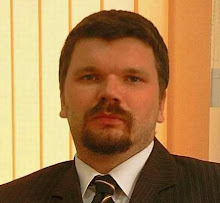The research compiled by the World Economic Forum, the World Bank and Transparency International present Greece as a nominally developed country with increasing problems. On the competitiveness scale, Greece ranks 71st, behind Hungary, Turkey, Colombia and Egypt-Switzerland, the United States and Singapore are first.
Greece lies currently in a very unstable fiscal environment, Greece rippled through global stock, bond and currency markets for weeks as investors worry about a new credit crisis based in Europe. Repeated promises by Greece to get its fiscal mess under control amid severe austerity measures have failed to win investors over, leading to the latest plan being considered by the wider EU.(http://www.theglobeandmail.com/report-on-business/economy/eu-set-to-pull-greece-from-the-brink/article1462020/ )
Other former socialist economies in the South-East of of Europe evolved during the last 20 years into competitive restively healthy systems. This means, that the state -owned enterprises together with their assets were subsequently privatized, and eventually, restructured, into a profitable stream.
During the 2009 recession, major American and European private and state-owned companies tried to restructure their expenditures, trying to reduce their costs and improve the profitability. In some cases, even the financial survival of the company was at stake.
Pubic investments were also meant as a partial solution to the crisis. The "State" intended to finance the following types of investments:

- Highways, Motorways, Interstate infrastructure investments (constructions)
- Thermal rehabilitation of older buildings (constructions)
- Construction of Water and gas pipes, residual waste systems for remote villages where this kind of utilities are currently missing.
- Food damage prevention constructions on major rivers
Romania is no exception in the region. The country received recently a new loan from the IMF.
Hopefully, Romanian politicians will not drag the country into the recent Greek experience.
"The Executive Board of the International Monetary Fund (IMF) today completed the second and third reviews of Romania’s economic performance under a program supported by a 24-month Stand-By Arrangement (SBA). The completion of the reviews enables the immediate disbursement of SDR 2.18 billion (about €2.45 billion or about US$3.32 billion), bringing total disbursements under the program to SDR 8.26 billion (about €9.32 billion or about US$12.60 billion).
In completing the reviews the Executive Board also approved Romania’s request for a waiver of non-observance of the end-December 2009 performance criterion pertaining to the ceiling on the accumulation of general government domestic arrears."

